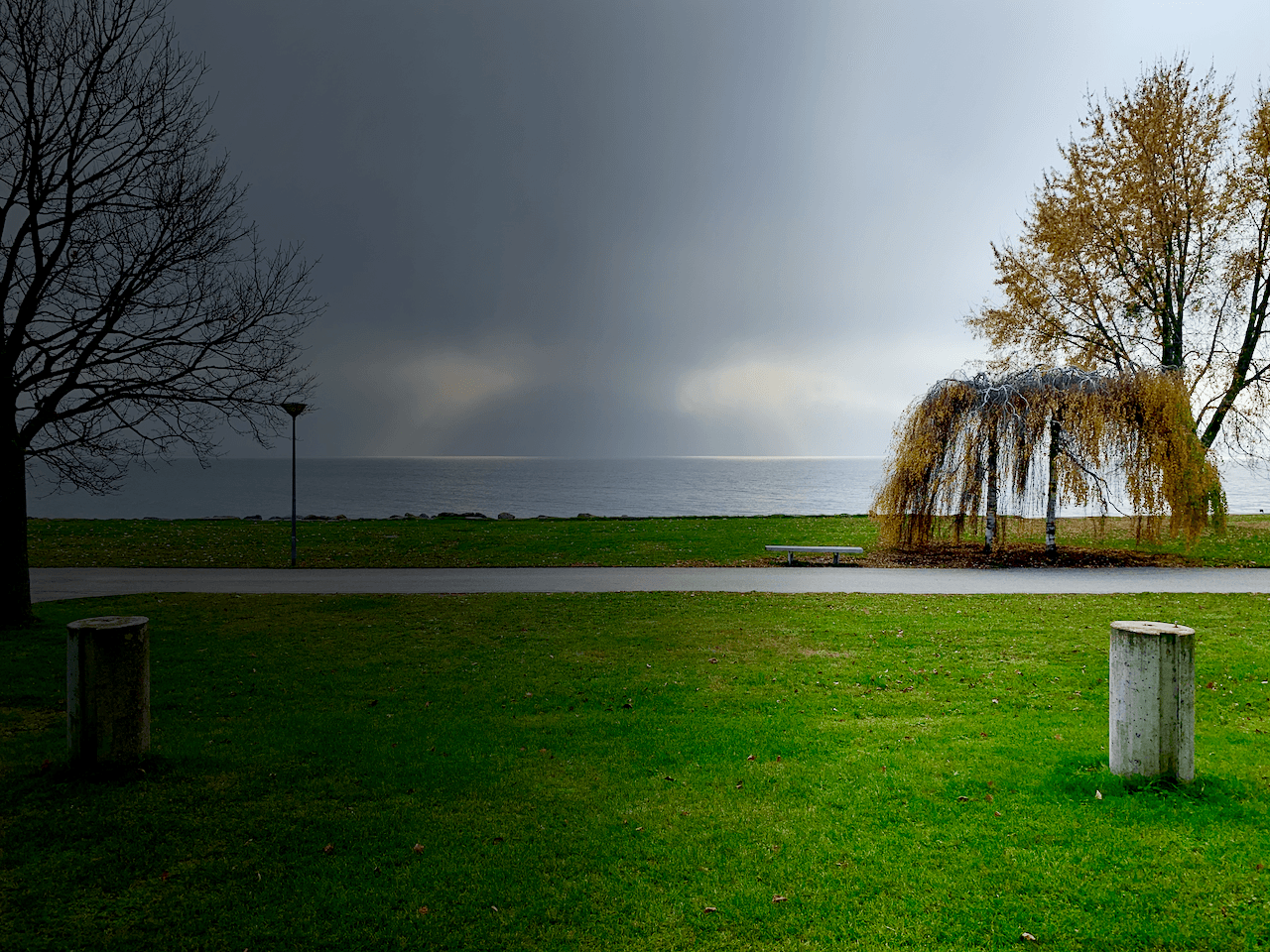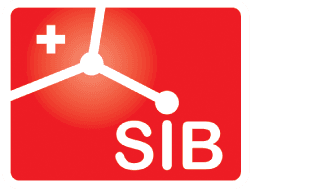Sharing the Experience: Workflows for the Digital Humanities
- Topics

In December 2019, the University of Neuchâtel hosted a second Swiss DARIAH workshop, organised by DARIAH-EU, the University of Neuchâtel and the SIB Swiss Institute of Bioinformatics within the DESIR project. Young scholars were invited to present their research in depth and to discuss together methodological, data management and research workflow issues. We are happy to present the papers resulting from this meeting.
About this event
Description
After a first workshop held in November 2018, the University of Neuchâtel hosted a second DARIAH-CH workshop on December 5-6 2019.
For this event, young scholars were invited to present their research in depth and to discuss together methodological, data management and research workflow issues.
In addition, DARIAH organised during these two days training sessions on sustainable data workflows in the Arts and Humanities by the DARIAH Open Science officer, Erzsébet Tóth-Czifra.
We are happy to present on DARIAH-Campus the papers resulting from this meeting.
Program
See here.
Partners
The workshop was organized in collaboration with the Digital Research Infrastructure for the Arts and Humanities (DARIAH) and the H2020-funded project DESIR. Partner institutions were the University of Neuchâtel and the SIB Swiss Institute of Bioinformatics.
DESIR has received funding from the European Union’s Horizon 2020 research and innovation program under grant agreement No 731081.
Organisation committee
- Simon Gabay (UNINE) simon.gabay@unine.ch
- Elodie Paupe (UNINE) elodie.paupe@unine.ch
- Sara Schulthess (SIB) sara.schulthess@sib.swiss
Scientific committee
- Simon Gabay (UNINE)
- Berenike Herrmann (UNIBAS)
- Tobias Hodel (UZH)
- Sara Schulthess (SIB)
- Elena Spadini (UNIL)
- Toma Tasovac (DARIAH)
Participants
- Marc Aberle (University of Neuchâtel) - speaker
- Helena Bermúdez Sabel (University of Lausanne) - speaker
- Loup Bernard (University of Strasbourg) - keynote
- Vera Chiquet (University of Basel/ DaSCH) - speaker
- Francesca Dell’Oro (University of Lausanne) - speaker
- Fabrice Flückiger (University of Neuchâtel) - speaker
- Simon Gabay (University of Neuchâtel) - organisation
- Martin Grandjean (University of Lausanne) - speaker / chair
- Tobias Hodel (University of Bern) - speaker / chair
- Henrike Hoffman (ETH) - speaker
- Béatrice Joyeux-Prunel (University of Geneva) - chair
- Jan Kaßel (University of Leipzig) - speaker
- Moritz Maehr (ETH) - speaker
- Paola Marongiu (University of Lausanne) - speaker
- Mina Monier (SIB Swiss Institute of Bioinformatics) - speaker
- Elisa Nury (University of Geneva) - speaker
- Elodie Paupe (University of Neuchâtel) - organisation
- Simone Rebora (University of Basel) - speaker
- Sara Schulthess (SIB Swiss Institute of Bioinformatics) - organisation
- Violeta Seretan (University of Lausanne) - speaker
- Elena Spadini (University of Lausanne) - chair
- Toma Tasovac (DARIAH) - speaker / chair
- Erzsébet Tóth-Czifra (DARIAH) - speaker
- Marco Vespa (University of Fribourg) - speaker
- Daniela Zetti (ETH) - speaker
Coordination
- DARIAH-EU
- Université de Neuchâtel
- SIB Swiss Institute of Bioinformatics
1.Voting on Faith: Digital Humanities and the Mapping of Reformation Ballots
Abstract
In the 16th century, ballots were held in a significant number of cities and villages under supervision of the Swiss cantons in order to choose between the reformed ideas and the teachings of the Roman Church. This workflow paper aims to demonstrate how using the symogih.org information system gives new insights in crucial aspects of the voting process. Developed by the LARHRA in Lyon, http://symogih.org is an open modular platform which stores geohistorical information and allows researchers to share knowledge in a collaborative environment, using a CIDOC CRM compatible, event-centred extensible model. It allows to collect and link together data in order to identify and analyse key configurations and processes about these ballots on faith, such as the definition of questions submitted to the voters; the identification of the actors allowed to cast a vote; the networks of alliances and overlapping jurisdictions characterising the relations between communes, parishes and magistrates. The paper will therefore show how digital humanities contributes to a better understanding why a vote was considered as the right path to a wise religious choice and under which circumstances such ballots were organized in Reformation times.
2.Supporting Sustainable Digital Data Workflows in the Art and Humanities
Abstract
The Data and Service Center for the Humanities (DaSCH) operates as a platform for humanities research data and ensures access to this data and promotes the networking of data with other databases (linked open data), to ad value for further research and the interested public. As a competence center for digital methods and long-term use of digital data, it supports the hermeneutically oriented humanities in the use of state-of-the-art digital research methods. Focusing on qualitative data and associated digital objects (images, sound, video, etc.) in the cultural heritage field.Long-term archiving or access is a major topic after the digital turn in the humanities, as many funding agencies such as the Swiss National Science Foundation and the European Commission are now requiring that a data management plan be in place in order to receive research funding. This new imperative raises many questions in the scientific community. This papers points out the contributions of the DaSCH for digital humanities researchers and the advantages of interoperability.
3.A Conceptual Framework for Multilayer Historical Networks
Abstract
The technicality of network visualization applied to history and its relative novelty often result in a superficial use of a software, limited to describing a situation immediately extracted from a data set. This approach is justified in the exploratory phase of an analysis in most cases where the network is very explicitly present in the object studied. But the complexity of the entanglement of historical actors, places, institutions or temporal sequences makes finer modeling necessary if we want to go beyond a simplistic “datafication”.To encourage curiosity towards other modes of analysis and put the data modeling (and therefore the historical sources) at the center of the research process, this article attempts to discuss what makes a historical network, its components, its relationships, its layers and its different facets. It offers a kind of visual guide to help historians follow a multilayer framework to think their research object from another (multidimensional) angle.
4.From Me to You: Peer-to-Peer Collaboration with Linked Data
Abstract
In recent years, Digital Humanities’ collaborative nature caused a wake digitally-native research practice, where interdisciplinary workflows commonly feed into centralized data repositories. Connecting these repositories, the W3C’s Web Annotation specification builds upon Linked Data principles for targeting any web resource or Linked Data entity with syntactic and semantic annotation. However, today’s platform-centric infrastructure diminishes the distinction between institutional and individuals’ data. This poses issues of digital ownership, interoperability, and privacy of data stored on centralized services. With Hyperwell, we aim to address these issues by introducing a novel architecture that offers real-time, distributed synchronization of Web Annotations, leveraging contemporary Peer-to-Peer technology. Extending the Peer-to-Peer network, institutions provide Hyperwell gateways that bridge peers’ annotations into the common web. These gateways affirm a researcher’s affiliation while acting as a mere mirror of researchers’ data and maintaining digital ownership.
5.ArkeoGIS, feedback on the difficulty and interest of sharing digital data from archaeology
Abstract
After more than a decade online, the ArkeoGIS project illustrates the benefits of data sharing. Thanks to free software bricks, and with the precious help of the TGIR HUMA-NUM of the CNRS, this spreadsheet sharing platform has shown its efficiency. Each user can freely choose his language, his chronology and the data he wishes to share. With more than 100 database extracts from professionals, research grants and advanced students, the tool now offers more than 100,000 spatialized information about the past - in the Upper Rhine and also worldwide according to users needs. In this contribution, good practices, brakes and accelerators of data sharing by archaeologists and (paleo-) environmentalists within the ArkeoGIS platform will be discussed, with the hope of generating more sharing in the digital humanities.
6.The Grammateus Project: from Ancient Greek Papyri to a Web Application
Abstract
This paper describes the workflow of the Grammateus project, from gathering data on Greek documentary papyri to the creation of a web application. The first stage is the selection of a corpus and the choice of metadata to record: papyrology specialists gather data from printed editions, existing online resources and digital facsimiles. In the next step, this data is transformed into the EpiDoc standard of XML TEI encoding, to facilitate its reuse by others, and processed for HTML display. We also reuse existing text transcriptions available on papyri.info. Since these transcriptions may be regularly updated by the scholarly community, we aim to access them dynamically. Although the transcriptions follow the EpiDoc guidelines, the wide diversity of the papyri as well as small inconsistencies in encodings make data reuse challenging. Currently our data is available on an institutional GitLab repository, and we will archive our final dataset according to the FAIR principles.
7.Absorbed in Goodreads. A Computational Approach for the Study of Online Social Reading
Abstract
We present our method and interim results of the “Mining Goodreads” project, aimed at developing a computational approach to measure reading absorption in user-generated book reviews in English. Annotation of 600 texts showed the difficulties in finding an agreement in the tagging of sentences. However, the parallel work of five annotators offered the opportunity to distant read the language used by reviewers when talking about absorption. Machine learning approaches were applied on the annotated corpus, producing promising results.
8.Digital Critical Edition of Apocryphal Literature: Sharing the Pipeline
Abstract
The emerging field of Digital Scholarly Editing, concerned with the application of the digital paradigm to textual criticism, offers a range of software solutions for assisting critical editors in their task of documenting textual variation. But how to go from a set of disparate of tools and resources to an integrated pipeline, where the data travels seamlessly from one format to another while meeting the requirements of each component? In this paper, we explain how we build and share an integrated processing pipeline that takes us from manuscript transcriptions in TEI XML format to a graph representation of textual variation, which constitutes the basis for the editorial work and the creation of the actual edition. With Docker Compose as the only technical prerequisite, running the pipeline is only one command away: the environments needed to run each software component are set up automatically, the processing begins, and at the end, a web server is launched which displays the automatically-built variant graphs ready for manual analysis using a dedicated online tool, Stemmaweb. This is an example of how technological advances are exploited to alleviate the technical burden put on editors.
9.The WoPoss Workflow: the Semantic Annotation of Modality in a Diachronic Corpus
Abstract
The FNS project A world of possibilities (WoPoss) studies the evolution of modal meanings in the Latin language. Passages expressing modal notions such as ‘possibility and ‘necessity’ are annotated following a pipeline that combines both automatic and manual annotation. This paper discusses the creation, annotation and processing of the WoPoss corpus. Texts are first gathered from different online open access resources to create the initial dataset. Due to the heterogeneity of formats and encodings, these texts are regularized before the application of an automatic linguistic annotation. The annotated files are then uploaded to the annotation platform INCEpTION. Through this platform, annotators add the relevant linguistic and semantic information following the WoPoss guidelines. The results of the automatic annotation are also curated. The fine-grained semantic annotation is the core activity of the WoPoss workflow, thus this paper focuses on the preparation of files and how the semantic annotation task is tackled.



